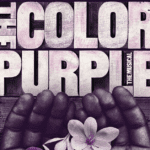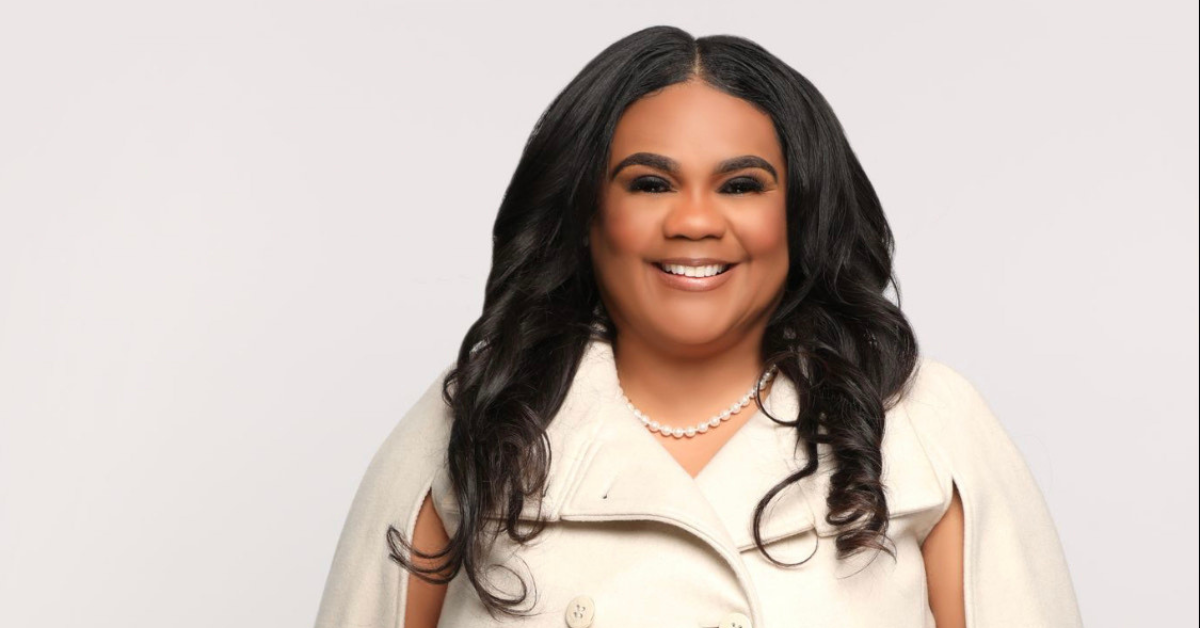Celebrating 50 years of Hip Hop with Exec Catherine Brewton
We couldn’t start celebrating 50 years of hip-hop without talking to Catherine Brewton, Vice President of Creative at Broadcast Music, Inc. She is one of the most important executives in hip-hop. She has worked with some of your favorite artists, and they trust her instincts and advice because she leads by listening, whether she is in a meeting or the studio.
She loves and admires the history of hip-hop and how it has changed the world. Because of this, she works hard to find new talent and bring people from different generations together. She knows that hip-hop’s real power comes from its roots and basis in storytelling, so it’s her goal to make sure the next generation knows this too.
Catherine Brewton: Before we get into the conversation of music and hip-hop, I want to know who Catherine is.
Brewton: I am a woman who understands the value of her own contributions. I wake up every day knowing that I’m blessed that God has granted me this life to do something I love. I have become incredibly tapped into really using my platform unilaterally to help others who see me in the position I am in now. I know there are many who don’t really know my journey or how I got here.
Cox: Speaking of journey, how has it been for you because you have literally been in the industry during the pivotal eras and seen the growth in the music industry?
Brewton: I’ve had a really incredible career, and I take pride in just knowing that I’ve been consistent. What I mean by being consistent is showing up when you don’t feel like it. When things didn’t necessarily go as planned, I still showed up and gave my best.
Cox: Where were there any hardships in particular for you during your journey climbing the ranks and becoming a trusted executive and advisor to many?
Brewton: I know we love to hear a story where things were hard for a person starting out in their career in a position like an intern, but that wasn’t my story. I was extremely fortunate enough to start my career at the Grammys.

Cox: This is a tough industry to break into, sustain longevity in, and build trust in, but I want to know if hip-hop and music found Catherine or if she found them.
Brewton: They both definitely found me. My mom was a pastor, so I didn’t grow up listening to hip-hop, but being a church girl, I listened to church music and developed a deep appreciation for lyrics and song structures. It wasn’t until I worked at the Grammys that I was actually introduced to hip-hop and all the other genres. I was a late bloomer, really. This was the moment that helped shape my palette for music. I wasn’t just exposed to hip-hop; it was jazz, pop, Latin, country, rock, and everything else that was represented there.
I cultivated the gift of really just appreciating all forms of music during that time.
Cox: What was it about hip-hop that stuck out to you the most after really learning more about it and diving deeper into it?
Brewton: I just really appreciated the fact that it told stories, especially of overcoming struggles or just struggles in general. This goes back to my church roots because, when it comes to songs sang in church, a lot of importance is placed on the structure of the song and story.
Cox: After your start with the Grammys, you really took off in the industry.
Brewton: Yes, I opened the Atlanta chapter of the Recording Academy. For the next three years, I really got to see the highest level of music and production with artists who were at the pinnacle of their careers.
Then BMI (Broadcast Music Inc.) reached out to me to open an office in Atlanta. I didn’t know what it was at first, so I had to do my research. This was going to be another opportunity for me to blaze a trail.
Cox: What was it about the BMI opportunity that kept you intrigued after your research?
Brewton: BMI had representation in the market, but they didn’t have an actual office. And in the late 1990s, Atlanta was booming. Hip-hop wise, they had OutKast and Goody Mob, but even in R&B, they had Usher and TLC, all at the pinnacles and peaks of their careers.

Cox: You built offices from the ground up and assisted with the discovery and development of artists. How did you make it possible for individuals, groups, and management to trust your insight?
Brewton: You know, I became a trusted advocate. For some reason, people in the industry saw me as their sister or cousin who had earned their respect. Instead of professing to know it all, I showed up and listened a lot when I was in the studios. I’m such a studio rat.
Cox: The studio is where the magic happens. Can you share a special moment in the studio that stays with you? I know you have so many precious moments.
Brewtown: I was telling someone at a recent listening party how When You Touch Me by Brandy is one of my favorite songs by her. I was in the studio when it was made. When I told you, Michael, everyone was in tears, and Brandy walked out of the studio sobbing because it was such an emotional moment in the booth for her. It was the heart that went into the perfect delivery of her vocals. It was one of my top aha moments in the studio, and that means something because I’ve been in the studio with so many greats like her.
Cox: You know, with the culture of today, we hear so much talk about the studio. From your point of view, what does the studio truly represent in music?
Brewton: For some reason, this culture has now become submerged in the symbolism of the creation of the creative process (being in the studio) versus what’s really coming out of it. Future, for example, is someone for whom I don’t know anyone else who spends as much time in the studio as he does. See what he does in there? He writes, and he is an incredible writer.
And that’s the difference, because you have people who go into the studio who really do their thing and become super successful. Then you have others who just enjoy it and might not make anything of it, and that’s okay.

Cox: I want to chat about hip-hop now that it’s in its 50th year and we are celebrating it. You’ve seen it in many stages and eras. There is this debate on hip-hop today compared to yesterday. What are your thoughts from an executive standpoint?
Brewton: It’s so funny because this debate happens often in rooms with some of the greats and newcomers. So in the 90s, New York really set the tone for hip-hop. You can’t talk about the 90s and hip-hop without talking about people like Dougie Fresh and Kumo Dee. They and other New York artists really cemented this genre as a cultural movement and told stories about struggles.
Then we go to the West Coast in LA and get NWA, who had a different type of story to tell from their perspective. The LA guys were telling stories and doing their own thing.
This happened in the South, and they were telling their own stories through hip-hop as well, but from a southern perspective. When you look at it, each region refined the lyrics differently, and a whole new lingo was used.
So no, I don’t think hip-hop has changed. I think the message has changed, and that’s okay. You know things change in terms of what’s relevant to people, culture, and artists. Hip-hop is about telling stories, and stories for people in their 20s now compared to those in their 30s will always be different. The narrative is different for them. The change that happens isn’t for the better or for the worse of hip-hop; it just is.
Cox: While we are talking about things changing in hip-hop, what do you think about the controversy that comes with newer and emerging female rappers when people think they oversexualize their lyrics or image?
Brewton: It’s like why women can’t express whatever their self-expression is. There is still a lot of hypocrisy and a double standard when it comes to female artists, especially in hip-hop. Take Cardi B, for example; she is a fashionista now. She went from the strip club to a super-successful business mogul. You know, and that’s not a bad thing that she can check all these boxes and achieve this much success by being herself. She embraces her truth and lives for what works for her. She’s not watching anyone else’s game.
And I think more women like her need to be embraced and applauded.
Cox: What advice would you give an artist trying to break out in the industry?
Brewton: Your gifts and skills that God gave you remain a hobby until you understand how to monetize them. They must process that it doesn’t matter if they have written over a thousand songs that sit on their hard drive. If they want to invest in this as a career, they have to continue to find ways for it to make money so that they can support themselves. This goes for artists, songwriters, producers, composers, lyricists, and all those in this industry.
I know it’s hard when you are starting out, especially trying to monetize your gifts and skills, but you have Googled. Everything can be Googled now, so you don’t have an excuse not to know how.
And come with a plan because I can tell you what I think is the absolute best path for you, but that might not be it if you don’t know what you truly want or where you want to go.
Lastly, they need to ask themselves if they are truly ready to pull the lever if somebody has an opportunity for them.

Cox: Thank you for sharing your insight. You have two things outside of music you are working on. I would love to learn first about the Walk of Fame project you are producing.
Brewton: It’s a celebration of black excellence, for us and by us. It was birthed during such a precarious time, but I am grateful for that time during the pandemic when we truly came together and created the perfect concept in the most historic area of Atlanta.
Cox: I recently learned about this amazing documentary you are producing in honor of your mother.
Brewton: My mother was such an incredible woman who set the tone for the woman I’ve become. She passed away eleven years ago while I was on vacation in Florida, which was a traumatic time in my life. When I was going through her things, I discovered a manuscript she wrote titled The Peacemaker of Charlotte. It will be renamed “Documentary. But the story is how she moved back to her neighborhood and bought up the block. This is a powerful story because it intertwines with her story of how she saved a community that my father was murdered in. She even had a street named Brewton Drive changed to Brewton Drive. It’s about legacy, and I have even gone into that neighborhood and dedicated a building called the Barbara Brewton Youth Center, which provides free summer programs, after-school care, tutorial services, food, and clothing to kids in the neighborhood. This is all 100% free, so hopefully God and my mom are both proud of the work I’ve continued.






